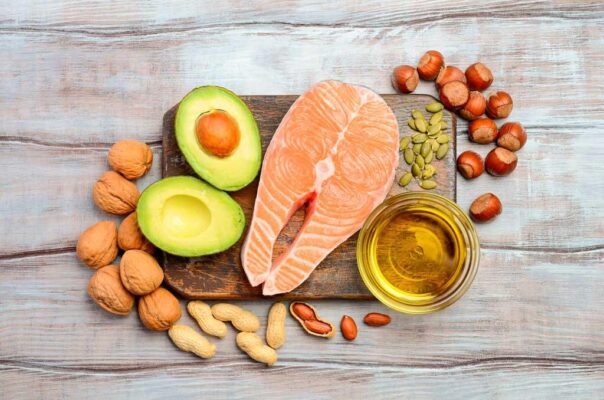Fats can be categorized into two types: saturated and unsaturated, which vary in terms of their
chemical structure and impact on an organism.
Saturated fats are found in animal products and industrial bakery items, and they can be harmful
as they raise cholesterol levels, which increases the risk of heart disease.
Unsaturated fats, which are beneficial for health, can help lower blood cholesterol levels. They
can be found in significant amounts in plant-based foods and oils. On the other hand, there are
trans fats that are formed during the processing of saturated fats. These trans fats not only
increase levels of bad cholesterol but are also considered more harmful.
The role of beneficial fats in sports
Healthy fats can be found in foods like fish, legumes, natural nut butters, and vegetable oils.
Among them, omega-3 healthy fats are also very important. An athletes diet must include a
minimum of 10% beneficial fats as inadequate consumption can lead to morpho-functional
disorders in the body. If this requirement is not met, there is a risk of decreased sports results. A
deficiency in healthy fats results in reduced testosterone production, suppressed muscle tissue
anabolism, and decreased immunity. Furthermore, the assimilation of B vitamins, crucial for
athletes, is only achievable in the presence of these fats.
It has been scientifically proven that when unsaturated fatty acids comprise 10 to 15 percent of
the daily caloric intake, it promotes rapid recovery, establishment of a positive nitrogen balance,
and enhanced immunity. However, when the specific weight of fat rises to 30 percent or even
higher, its effect becomes negative. Immunity decreases, anabolism worsens, fatigue increases,
reproductive function decreases, and the process of fat storage accelerates.



